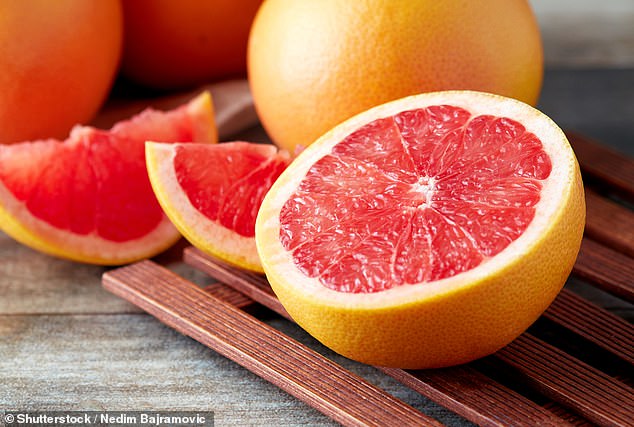The death of grapefruit juice? Why the once popular breakfast product is disappearing from our supermarket shelves as younger generations reject its bitter taste
It’s a bitter pill for grapefruit fans, but the once so popular breakfast table staple is disappearing from our supermarket shelves.
Younger consumers are rejecting grapefruit juice because of its tart taste, while older fans find they can’t drink it because it causes side effects when mixed with several popular medications – including statins and some blood pressure and hay fever tablets.
Sales have halved since the pandemic, accelerating a gradual decline since the fruit’s heyday in the 1960s and 1970s.
Across Britain, annual sales have fallen from around 14.4 million liters in the year to May 2021, to just 7.5 million liters in the year to last month, data from market analysts Kantar shows.
Asda is said to have been the first major retailer to withdraw its own-brand version from shelves in March 2022.
It’s a bitter pill to swallow for grapefruit fans, but the once popular breakfast table staple is disappearing from our supermarket shelves

Younger consumers reject grapefruit juice because of its tart taste, while older fans find they can’t drink it because it causes side effects when mixed with several popular medications, including statins and some blood pressure and hay fever tablets.
Grapefruit is known to interfere with the effects of common medicines, including cholesterol-lowering statins – taken by up to 8 million Britons – and the blood pressure medication nifedipine and the antihistamine fexofenadine, among others.
“Grapefruit… can render medications unusable or allow more medications to enter the bloodstream, causing an overdose,” says Star Khechara, a juice therapy instructor who directs the Skin Nutrition Institute’s training center.
‘Personally, I love grapefruit juice… but as a user of fexofenadine for hay fever, I should avoid the juice during the months of June to August.’
Younger consumers have turned against grapefruit because they prefer sweeter flavors, experts say. The TikTok generation is also critical of the health benefits of juices – which some say are too full of sugar.
